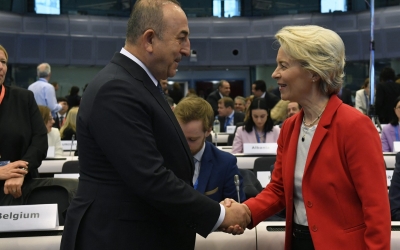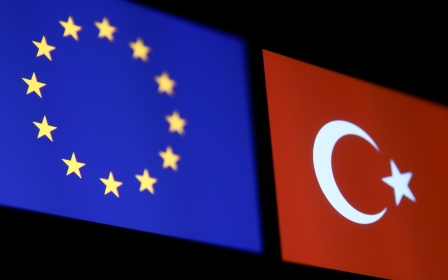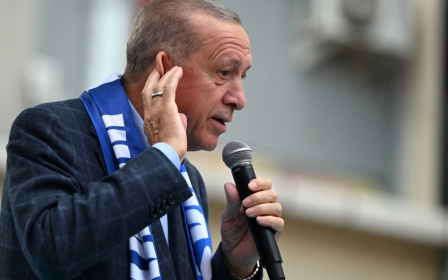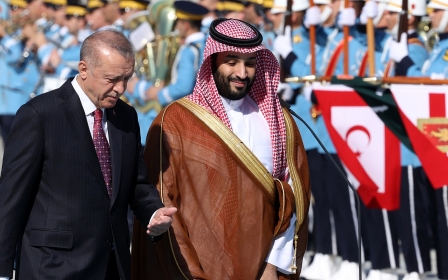EU-Turkey customs union: The time for change is now
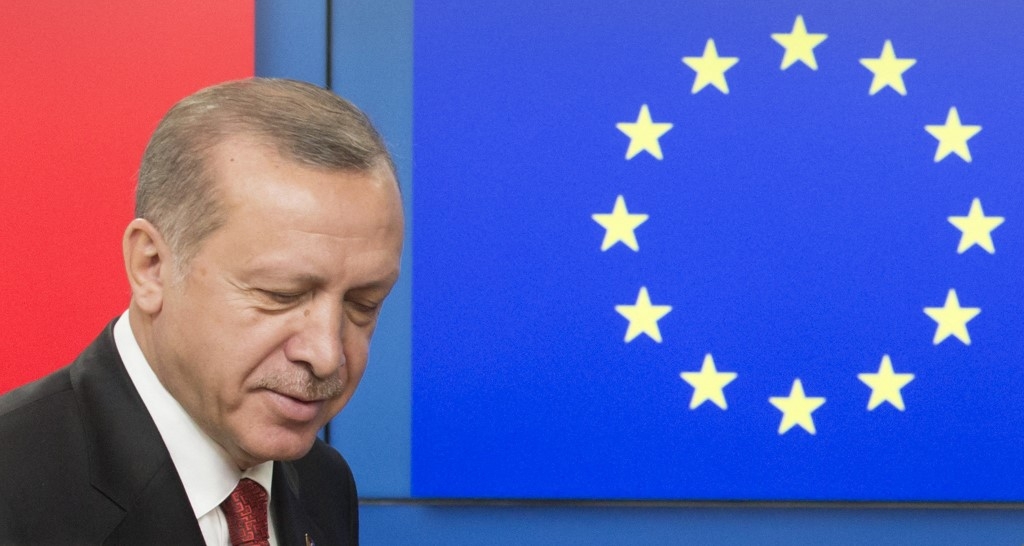
European Nato members were caught by surprise when Turkish President Recep Tayyip Erdogan this month agreed to back Sweden’s bid to join the alliance. Two issues in particular were mentioned in the final statement, with Sweden vowing to support visa liberalisation and modernisation of the EU-Turkey Customs Union, within a broader commitment to “actively support efforts to reinvigorate” Turkey’s EU accession process.
On the first issue, it is unlikely that visa liberalisation will occur in the foreseeable future. Work should thus focus on a framework to bolster application procedures for certain groups of applicants, while officials aim to address outstanding issues around the exercise of economic freedoms granted to Turkish nationals under previous agreements.
On the second issue, the long-overdue update of the customs union is not only feasible, but for Ankara, it is the most important file upon which it wants Brussels to move. EU member states have been stalling progress on this file for years.
Since the mid-1990s, the EU-Turkey Customs Union (CU) has been supplemented by bilateral preferential agreements on agricultural products, and on coal and steel. Together, these instruments are referred to as the EU-Turkey bilateral preferential trade framework (BPTF).
The customs union was the final phase of the 1963 Ankara Agreement. The initial idea was that Turkey would eventually accede to the EU, but the signs that Ankara’s bid would face political obstacles were already clear when Greece objected to the customs union but lifted its veto in exchange for financial compensation and concessions that EU accession negotiations with Cyprus would start.
The customs union was designed with the flawed assumption that Ankara would eventually accede to the EU. It was thus intended to be transitional, but it ultimately became structural. Post-1995 changes to the global trade environment, the expansion of the EU, and a substantial increase in bilateral trade deals between the EU and third countries gradually led to an erosion of Turkey’s preferential position.
With the Treaty of Lisbon, the EU’s trade policy became part and parcel of its security and foreign policy, making it a geopolitical tool. This can be seen in its more ambitious and active post-2009 stance in inking free trade agreements with third countries.
Sitting on the sidelines
The BPTF requires Turkey to align with the EU’s common commercial policy, resulting in Ankara having to bear the brunt of bilateral trade deals between the EU and third countries. Because Ankara does not have a role in the pre-negotiation phase of such agreements, it is forced to sit on the sidelines and merely witness how such deals erode its preferential trade position.
Because these third countries get access to the Turkish market via their free trade agreements with the EU, and subsequently via the EU-Turkey Customs Union, they have no incentive to ink similar free trade deals with Ankara.
Ankara began to realise that it shouldn't persist in linking the enhancement of bilateral trade relations with its accession bid if it wanted the former to improve
As a consequence of this asymmetrical situation, Ankara does not always comply with the rules set out by the BPTF, which in turn spurs EU criticism. The lack of a dispute settlement mechanism has further exacerbated the situation. This dysfunction is compounded by the fact that the visa issue and impediments to economic freedoms are intertwined with the customs union framework.
Turkish businesspeople are being prevented from entering the EU to perform economic activities, while the BPTF also fails to cover certain areas, such as services and procurement, and lacks deeper liberalisation in agriculture - leaving trade potential untapped and hindering GDP growth and economic welfare.
In its 2014 enlargement strategy, the European Commission said it was “time to work towards unleashing the full potential of the Customs Union”, noting that “the EU should engage with Turkey on broadening and modernising mutual trade relations for the benefit of both sides”. During the same period, Ankara began to realise that it shouldn’t persist in linking the enhancement of bilateral trade relations with its accession bid if it wanted the former to improve.
In May 2015, a decision was made to launch preparations to update the CU framework - a carrot dangled in front of Ankara during the EU-Turkey Summit in November 2015, where Turkey and the EU adopted the Joint Action Plan to tackle the so-called migration crisis. The carrot was dangled again in front of Ankara when the EU-Turkey deal was sealed. In September 2016, the European Commission gave a green light to start negotiations, and a few months later, it asked member states for a mandate to launch talks with Ankara.
Boilerplate statements
In June 2018, however, EU member states called on Ankara to keep implementing the EU-Turkey deal, but simultaneously kicked the carrot away by linking the customs union negotiating mandate with elements of Ankara’s accession bid and developments in the Eastern Mediterranean.
Several years later, in March 2021, EU leaders noted that any CU update was conditional on developments in the Eastern Mediterranean. In June 2021, EU leaders engaged in similar linguistic acrobatics by taking “note of the start of work at [the] technical level towards a mandate for the modernisation of the EU-Turkey Customs Union”.
When it comes to this file, the usual boilerplate statements on rule of law and fundamental rights seem to miss the point that the BPTF is technically separate from Ankara’s accession bid - and if these concerns were sincere and tackling them was a common goal, this would be all the more reason to green-light discussions. The European Commission made this point in asking EU member states to adopt the mandate.
In addition, such concerns have not stopped the EU from concluding free trade agreements with third countries that don’t have a great track record on such issues. In 2019, just 12 days after EU member states reaffirmed their commitment to these values, the EU signed a free trade agreement with the Marxist-Leninist one-party Socialist Republic of Vietnam, eliminating 99 percent of all tariffs and reducing regulatory barriers. And just this past Sunday, the EU inked a deal with Tunisia that includes trade and investment.
The fact that the EU is using trade agreements as a geopolitical instrument can also be seen in other cases; for example, two months after Russia invaded Ukraine, European Commission President Ursula von der Leyen travelled to New Delhi to relaunch negotiations for an EU-India trade agreement, in an attempt to push Russia’s ally towards the West.
Partly for similar reasons, Von der Leyen recently did a Latin American tour to revive and bolster trade agreements and partnerships across the region. Brussels hosted the EU-Community of Latin American and Caribbean States summit this week, with these topics high on the agenda. Such deals could further harm Ankara’s preferential trade position.
Reinvigorating EU-Turkey relations should be perceived as a broader commitment, with work on the two aforementioned files forming concrete proposals. On Thursday, the EU Foreign Affairs Council will hold a discussion on Turkey; the Swedish foreign minister will surely brief the others, and a discussion on adopting the European Commission’s negotiation mandate will likely be held. A nice gesture would be to invite the new Turkish foreign minister, Hakan Fidan, to the Gymnich EU foreign ministers' meeting in August.
And in their first reunion since the Nato meeting in Vilnius, EU leaders will come together again at an informal European leaders' summit this October. Around the same time, the Turkish parliament will reconvene and place the ratification of Sweden’s accession protocol on its agenda. This would be a timely moment for EU leaders to discuss relations with Ankara “in a strategic and forward-looking manner”.
And speaking of a “strategic and forward-looking” approach, on Tuesday, the UK and Turkey decided to start talks on an updated free trade agreement.
The views expressed in this article belong to the author and do not necessarily reflect the editorial policy of Middle East Eye.
Middle East Eye propose une couverture et une analyse indépendantes et incomparables du Moyen-Orient, de l’Afrique du Nord et d’autres régions du monde. Pour en savoir plus sur la reprise de ce contenu et les frais qui s’appliquent, veuillez remplir ce formulaire [en anglais]. Pour en savoir plus sur MEE, cliquez ici [en anglais].


